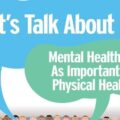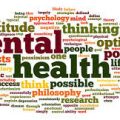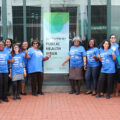The mental health advocacy movement has developed over the last 4 decades as a means of combating stigma and prejudice against people with mental disorders and improving services. Because of widespread ignorance and misunderstanding about people with mental disorders, they are often feared and face severe stigmatization and discrimination. Government health and social policies are often reflective of these fears. It is sometimes presumed that government’s primary responsibility with respect to people with mental disorders is to protect the general population from them. Such a perspective is not conducive to promoting access to high-quality treatment or respecting human rights. Furthermore, unlike people with other types of illnesses, people with mental disorders are often presumed to lack the capacity to make their own health care decisions. Advocacy movements emerged as a response to recognition that people with mental disorders were especially vulnerable to serious human rights violations, especially to involuntary long-term detention in psychiatric institutions. Often, such detention lacks any therapeutic purpose or value.
The movement was also dedicated to facilitating changes in society at large, in an effort to break down some of the barriers to social integration experienced by people with mental disorders. Most of the earliest advocacy organizations were created by close family members of people with mental disorders. Subsequently people with mental disorders began to form their own organizations to advocate for their own interests. Along with influencing the government and educating the public, such self-advocacy groups have the additional benefit of giving its members feelings of empowerment and self-esteem, which in themselves confer mental health benefits.
In addition to helping governments develop progressive mental health policies and laws, advocacy organizations can play a critical role in their successful implementation. They can also advocate on behalf of individuals facing discrimination, abuse or other injustices. Here is a list of top mental health advocacy groups and organizations;
American Psychiatric Association (APA)
The American Psychiatric Association is the professional organization for psychiatrists. While it serves these medical doctors so they can provide the best level of care to their patients, the APA has devoted an entire section of its website to patients and their families.
HelpGuide
HelpGuide is “your trusted guide to mental health & wellness.” They are an online organization dedicated to helping people help and empower themselves. They provide evidence-based information and self-help tools for you to take the next steps in your mental health journey. They offer articles and insights into mental health topics, including specific mental disorders (anxiety, depression, eating disorders, personality disorders, and more). You can discover information about health and wellness topics as well, like healthy eating, exercise, sleep, work, and relationships. HelpGuide equips you with basic information to start living well now and to catapult you on your journey to recovery from mental health challenges.
National Alliance on Mental Illness (NAMI)
An extensive grassroots organization, NAMI is present in more than 950 communities in 48 states as well as online. NAMI’s mission is threefold:
Advocacy and public awareness are important components of what NAMI does. NAMI members work with political leaders to improve mental health policies, and they hold events to raise awareness for mental health.
Education: NAMI affiliate resource centers provide a variety of educational programs for people with mental illness and their families. They also provide a series of classes to help people understand their diagnosis, and other classes are for veterans. NAMI partners with schools to provide programs for parents. Each affiliate decides which programs to offer depending on the needs of the community, and all programs follow a researched-based curriculum created by NAMI.
Support for people living with mental illness and for family members and caregivers of people with mental illness is a primary mission for NAMI. Local affiliates provide resources, support groups, and classes all led by peers (people living with mental health conditions) and family members or caregivers.
Mental Health America (MHA)
Mental Health America is a large, community-based mental health organization. This means that they have locations in cities and towns across America. They also provide information and support for mental health online.
Some of the many things MHA does include:
- Provide mental health screenings to help people understand symptoms and experiences
- Educate people about mental health conditions and living well through information and resources, an extensive blog, webinars, podcasts, and more
- Conduct nationwide advocacy work to increase awareness of and services for mental health
- Offer peer support programs, people living with mental health conditions helping others with mental health conditions
Anxiety and Depression Association of America (ADAA)
The ADAA is a leading organization dedicated to helping people learn about and overcome anxiety, depression, obsessive-compulsive disorder (OCD), post-traumatic stress disorder (PTSD), and co-occurring conditions. Members include people living with these challenges as well as medical and mental health professionals.By exploring the tabs on ADAA’s home page, you can:
- Become informed about anxiety disorders, depression and bipolar disorders, and related conditions
- Learn from blog posts, webinars, podcasts, videos, and member stories
- Find answers to common questions via their ”Ask an ADAA Therapist” column
- Gain information and resources from their “Find Help” section
Active Minds
Founded by a young woman whose older brother died by suicide after suffering schizoaffective disorder in silence, hiding his symptoms and receiving insufficient help, Active Minds brings mental illness to light and helps people understand, connect, seek, and receive proper help. With chapters on more than 500 college campuses nationwide, Active Minds members:
- Connect with communities to strengthen support and services
- Run programs like PostSecret, Send Silence Packing, and more
- Act as speakers to reach people at mental health events
Active Minds offers information and resources about mental health, including signs and symptoms, statistics, crisis information, getting help, and more. Explore the ”About Mental Health” tab on their website for a wealth of vital information.
Child Mind Institute
The Child Mind Institute is dedicated to helping children with mental health and learning disorders and their families. They work to improve standards of care, advance knowledge of the developing brain, and empower parents, professionals, and policymakers nationwide. The organization is a go-to source for information on a wide variety of age-specific mental health and learning disorders. Discover what you need to know about a diagnosis. Take advantage of free guides to help with decision-making, or visit their ”Ask an Expert” section for FAQs and enlightening insight. Some of their useful tools to help you sort out what your child may be experiencing include a glossary and symptom checker.
National Federation of Families for Children’s Mental Health (NFFCMH)
Run by families for families, the NFFCMH has over 120 national chapters and state organizations, as well as an online presence. This is an advocacy group dedicated to improving policies, legislation, and systems in order to benefit families and children with emotional, behavioral, or mental health needs.
They offer a plethora of information, resources, and support about specific topics (mental health, suicide, and substance use, for example) for people including:
- Families, parents, and caregivers
- Young adults
- Children
- Organizations
- Peer support specialists
To increase awareness and understanding of the mental health issues faced by youth and families, the NFFCMH holds an annual awareness week as well as a national conference.
Depression and Bipolar Support Alliance (DBSA)
An organization supporting people with mood disorders, DBSA provides life-improving education, support, help, and hope for more than 21 million people living with depression and bipolar disorders. This large group is led by peers, or people also living with mood disorders. Chapters throughout the U.S., as well as their website, provide education, support groups, and wellness resources.
PTSD Alliance
The PTSD Alliance exists to help people find treatment, resources, and support for this treatable disorder. Here, you’ll find pertinent information about PTSD including what it is, who experiences it, and eye-opening statistics. Additionally, they offer facts and insights on PTSD and addiction, two experiences that frequently co-occur. Learn where to find help and gather additional useful resources.
Schizophrenia and Related Disorders Alliance of America (SARDAA)
SARDAA is dedicated to improving the lives of Americans living with psychotic disorders. An important component of the organization is the Schizophrenia Alliance, a self-help support group with locations in 31 states, Canada, Mexico, Brazil, Venezuela, France, and India. This organization provides a wealth of resources to help people understand schizophrenia and other psychotic disorders. They also help people with discrimination, legal issues, and more.
Treatment Advocacy Center
This is an organization dedicated to removing barriers to the treatment of severe mental illness. They promote better laws, policies, and research to improve help for severe mental illnesses like schizophrenia and bipolar disorder. Providing resources for family and loved ones of people with severe mental illness is an important part of what they do.Their website provides valuable information that can be hard to find elsewhere on topics like:
- How to respond in a crisis
- Preparing for an emergency
- Understanding criminal justice involvement
- Knowing your state laws
- Learning about guardianship
- Figuring out HIPPA laws
Christian Mental Health Groups
Christian mental health groups not only tested, but designed with intentionality. These cost money to use the curriculum, but you also get a whole community with the organization. If you have the ability to do only one type of mental health group and have the interest, I would encourage you to invest in one of these groups first.
- Fresh Hope – Peer run short and long term mental health groups for individuals with a mental health diagnosis and their spouse.
- Grace Alliance Groups – Christian mental health groups designed to be in conjunction for participants with professional counseling.
- Celebrate Recovery – A curriculum that talks about how to break the chains of addiction and move towards recovery.






